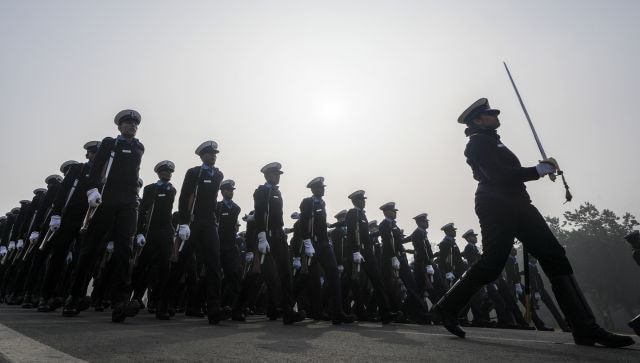Why navy may soon have Indianised, gender-neutral ranks
Why navy may soon have Indianised, gender-neutral ranks

In a new effort to shed the colonial past, the Indian Navy has decided to revise some ranks and replace them with Indianised designations. This comes as Indian armed forces have been taking steps to do away with colonial traditions in recent years.
Let’s take a look at what changes are expected to be introduced by the Indian Navy. What has prompted this?
Indianising designations
The ranks of 65,000 sailors are reportedly set to be changed.
The Indian navy will redesignate several ranks of the personnel below officer rank (PBOR) cadre, including three titles that are not gender neutral, according to a Hindustan Times (HT) report.
“Indianising ranks for the PBOR cadre was on our to-do list,” an official told the newspaper on the condition of anonymity. “The existing terms are an embodiment of British traditions. Also, gender-neutral ranks are a must to make the service environment inclusive. The new designations have been sent to the defence ministry for approval, which is expected soon.”
The ranks that will be redesignated are Master Chief Petty Officer Ist Class, Master Chief Petty Officer IInd Class, Chief Petty Officer, Petty Officer, Leading Seaman, Seaman Ist Class and Seaman IInd Class, reported HT.
As per the newspaper report, ranks with petty officer titles were unfavorable among the sailors.
There will be no changes in the Officer ranks, the report added.
Why are the modifications needed?
Adopting gender-neutral terms became a need for the navy after the first-ever batch of women sailors passed out from INS Chilka in March this year. Out of the 2,585 Agniveers who graduated from the navy’s lakeside training facility in Odisha, 273 were women.
Speaking to HT, officials said the inclusion of women in the navy’s PBOR cadre propelled the switch to gender-neutral ranks.
Admiral R Hari Kumar, chief of the Naval Staff, told Aaj Tak last December that the Indian military needs to ditch colonial practices. “We have formed a team to study what are the practices in the navy that are archaic and have no relevance today. Navies have evolved over many centuries and some practices are still being followed. They have no use today so why follow them,” he was quoted as saying by India Today.
He also questioned the need for designations such as petty officers and chief petty officers. ”There is a rank in our sailors called petty officer. What is petty? Why should it be a petty officer, above that there is a rank called chief petty officer, why should it be a chief petty officer? We can give these ranks a better name,” Admiral Kumar told the Hindi news channel.
Discarding colonial practices
India has been on the path of getting rid of its colonial customs, especially in the military. In 2021, Prime Minister Narendra Modi told the top commanders of the three services at the Combined Commanders Conference in Gujarat’s Kevadia to “rid themselves of legacy systems and practices that have outlived utility and relevance”.
The armed forces, especially the navy, have adopted several measures to indigenise their practices since then. The defence ministry has started renaming British-era cantonments as military stations, reported HT.
Last September, the Indian Navy got a new ensign replacing the old one which had Saint George’s Cross with the Tricolour in the canton. The new naval ensign was inspired by Chhatrapati Shivaji Maharaj, PM Modi said at the time.
In July, the navy stopped the practice of carrying ceremonial batons for all its personnel. “With the passage of time, carrying of batons by naval personnel has become a norm. The symbolism of authority or power pot heated through the holding of a baton is a colonial legacy that is out of place in a transformed navy of Amrit Kaal,” the force said in a communication.
Senior officers in command roles, commanding officers of warships, naval bases and other establishments, as well as provost personnel tasked with policing, vigilance and implementing discipline used to carry batons, reported HT.
According to an India Today report last month, the Indian Navy is mulling a proposal to introduce traditional Indian dress in their wardrooms and officers’ messes to “end colonial practices”.
With inputs from agencies























